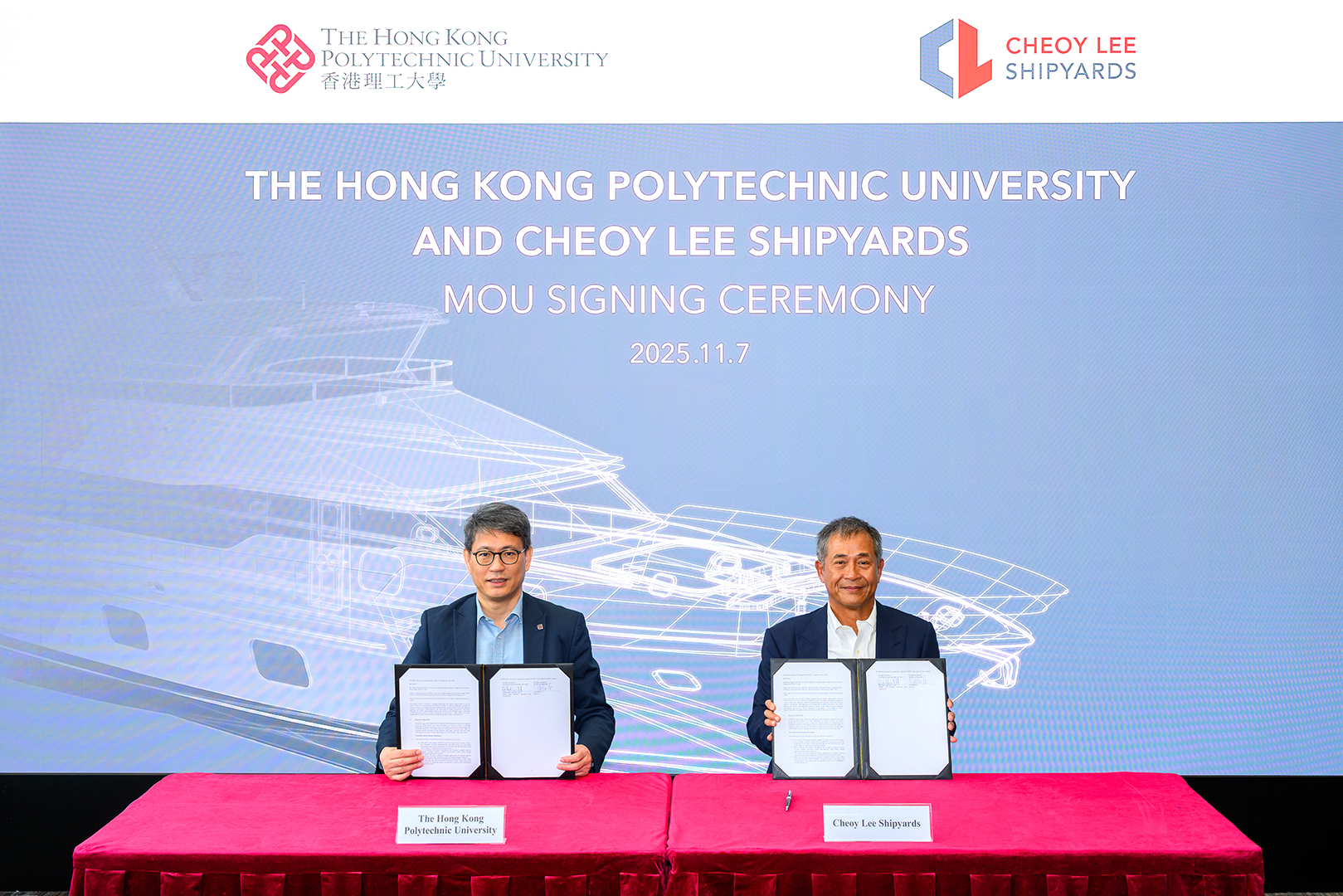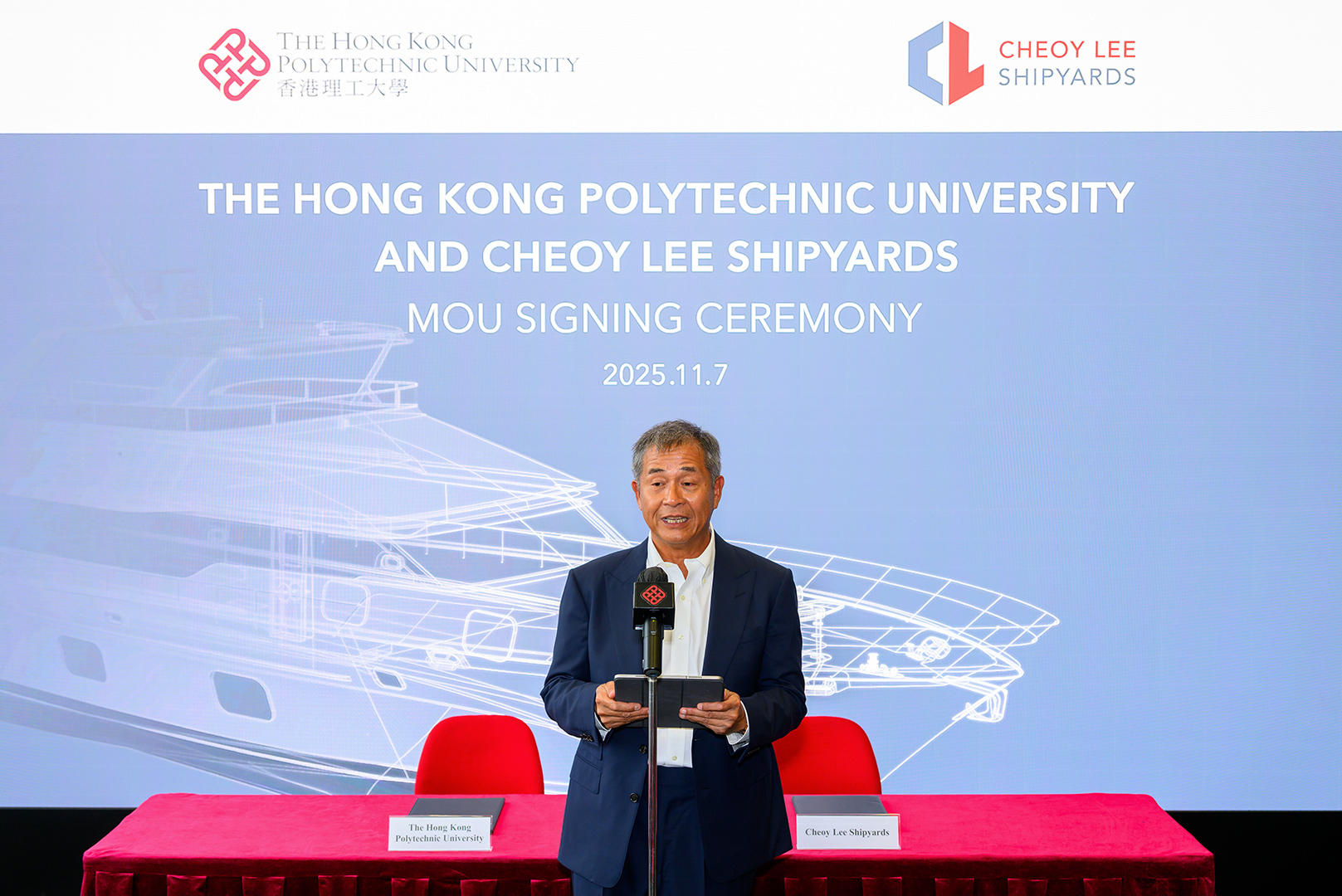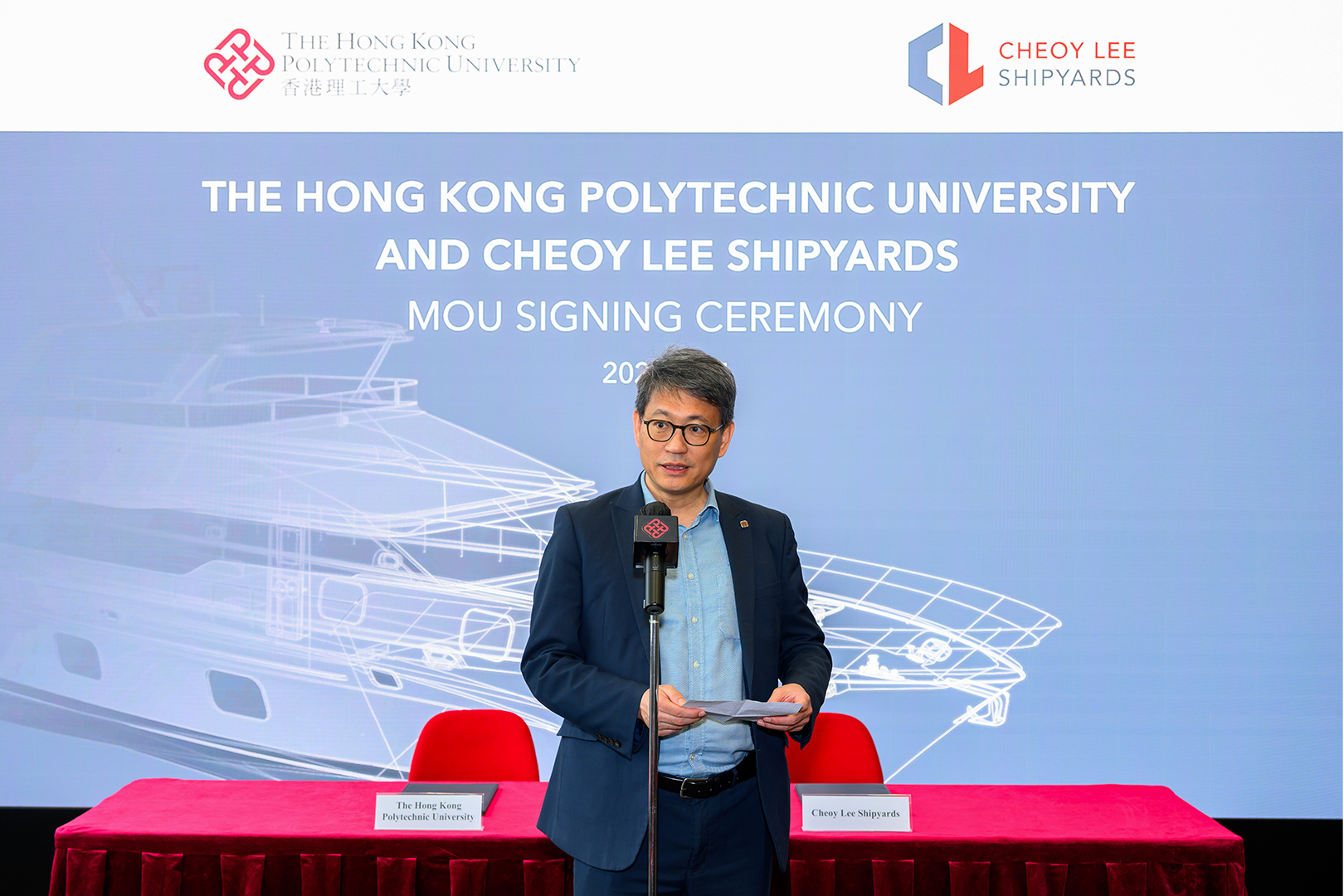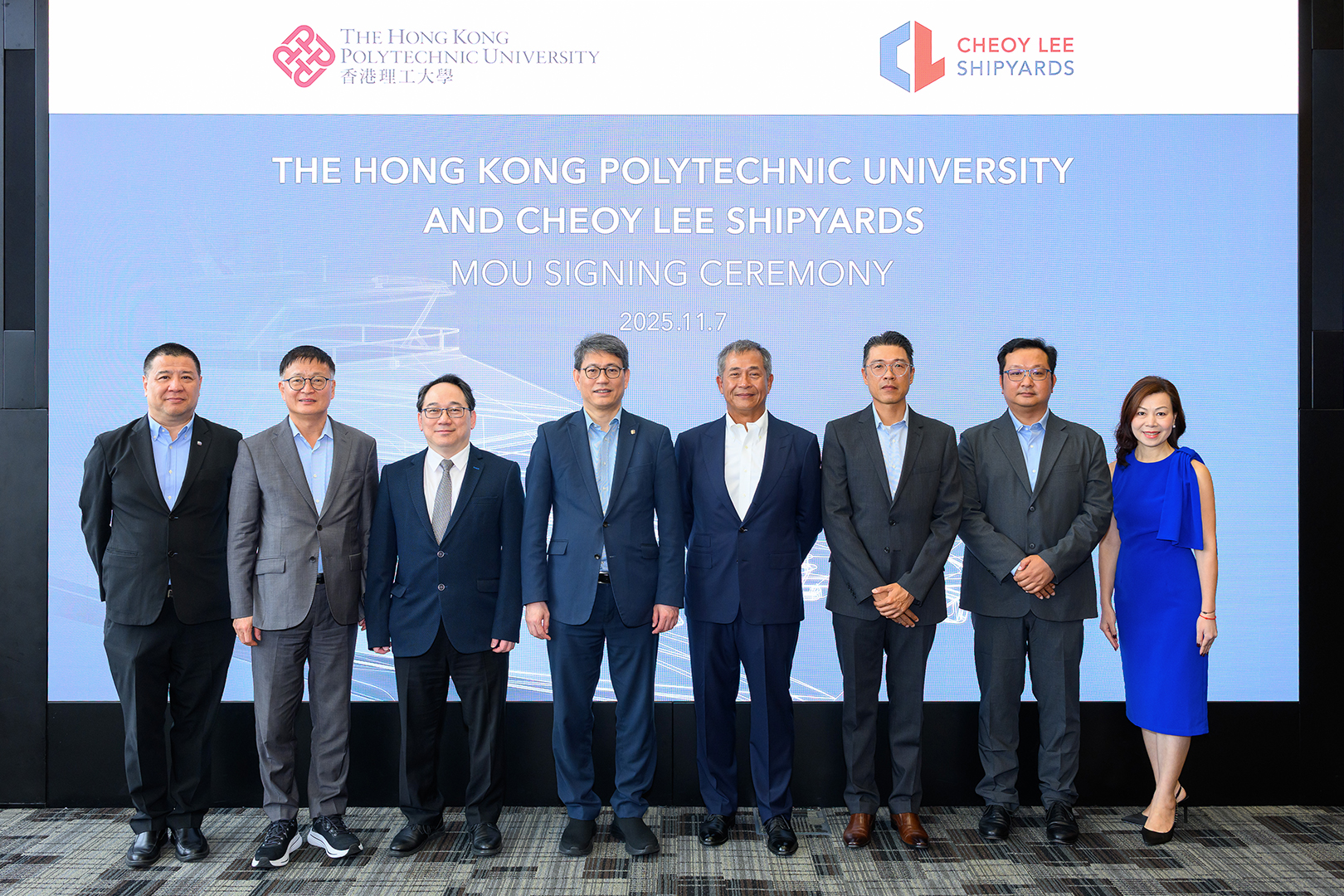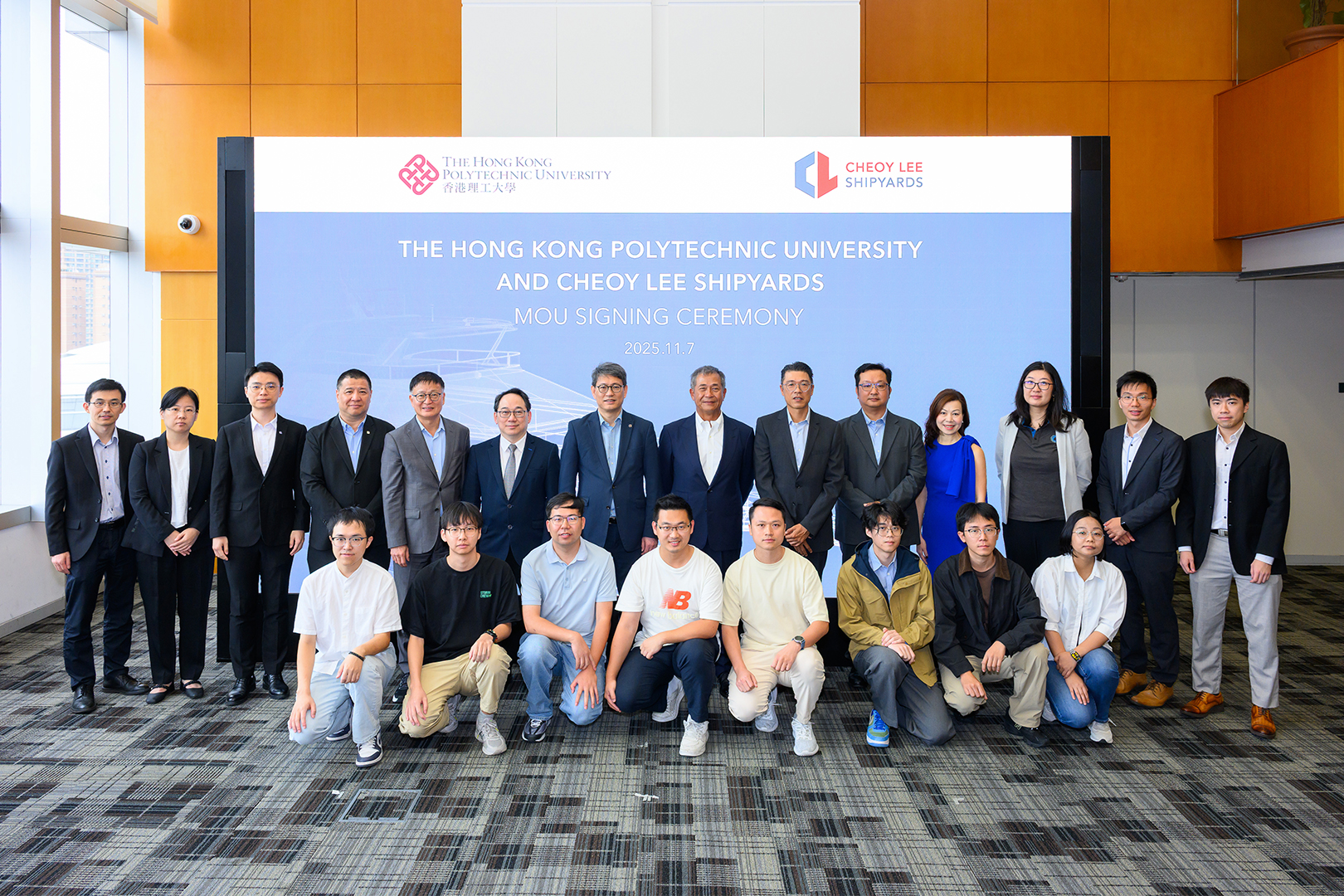
PolyU and Cheoy Lee join forces to promote research in sustainable shipbuilding.
The Hong Kong Polytechnic University (PolyU) and Cheoy Lee Shipyards have signed a Memorandum of Understanding (MoU) to collaborate on research and innovation in artificial intelligence robotics, alternative-powered vessels and green materials. The agreement aims to promote advances in electric vessel design, sustainable manufacturing technologies and renewable energy applications.
The signing ceremony took place at the PolyU campus, with Prof. Christopher Chao, senior vice president (research and innovation) of PolyU, and Martin Lo, director of Cheoy Lee Shipyards, representing their respective organisations.
Prof. Christopher Chao says, “PolyU is committed to advance cutting-edge research and promoting academic-industry collaboration. This partnership with Cheoy Lee Shipyards exemplifies the synergistic advantages of academia and industry, paving way for a new era of intelligent and sustainable vessels and reinforcing Hong Kong’s leadership in green shipping.”
Martin Lo says, “This collaboration marks a new milestone in the long-term partnership between PolyU and Cheoy Lee Shipyards. Our shared vision is to combine the university’s research excellence with the shipyard’s industry expertise to drive the future of shipbuilding and sustainable maritime development, moving towards smarter, greener and more sustainable growth.”
Under the MoU, both parties will work together on scientific research, testing environments and applied innovations that contribute to energy-efficient transportation and sustainable maritime technologies. The collaboration also supports Hong Kong’s ambitions to strengthen its role as an international innovation and technology centre.
Founded in 1870 and managed by the Lo family for several generations, Cheoy Lee Shipyards has long maintained a focus on innovation, engineering and product reliability. The shipyard builds vessels from steel, aluminium and composite materials, producing a variety of commercial and recreational craft for the global market. Its history is marked by international recognition for quality shipbuilding and contributions to the maritime sector.










